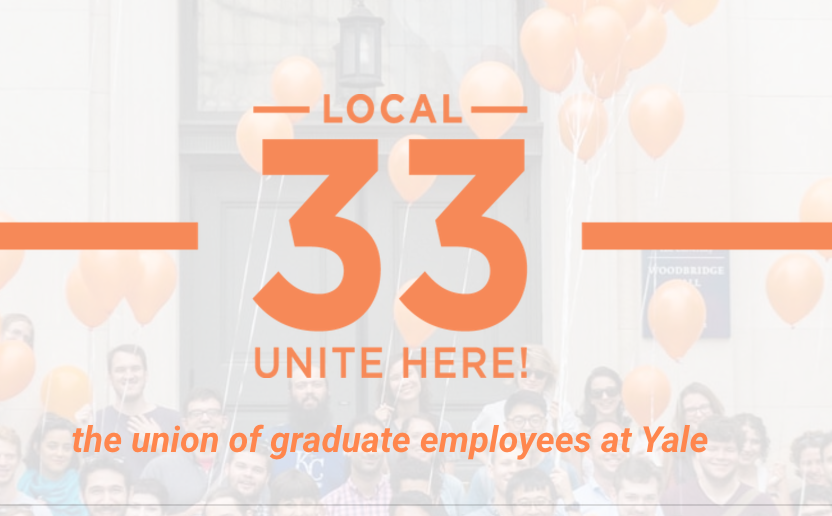by David Diaz
When I read a clickbait headline last month on the New York Times website – “Some Colleges Have More Students From the Top 1 Percent Than the Bottom 60. Find Yours.” – I didn’t have to guess where Yale would land. This is a familiar story to many undergraduates here. Three generations of my family are making sacrifices so that I can survive at Yale. We should demand more. Working class students and students of color deserve to thrive and spend our time participating in the activities that prepare us for the future.
Of course, it’s only the beginning of the story. The reality is that, for all but white elites, the more education we seek, the more difficult it becomes to survive, let alone thrive.
That’s why I want to see the members of Local 33, the graduate student union at Yale, win their elections for official recognition by the university and bargain a contract with the university: not just because I’m pro-union (though I am), or because their working conditions are our learning conditions (though they are). I want them to win because I desperately want more from the dream of higher education for working-class folks like myself.
When I was accepted to Yale, I felt incredibly proud that I would have the opportunity to make my family’s life easier in the future. Neither of my parents had graduated from college, and the promises Yale made that my family’s income level meant we would pay $0 for my education suggested that all I could focus on taking advantage of all the resources Yale had to offer. Unfortunately, Yale has not fulfilled these promises. My family wants me to thrive at Yale to prepare for my future—which I hope includes a graduate education—and this requires me to focus on leadership and academics, not on a campus job. To cover the student income contribution, we split it five ways: both of my parents, each of their parents, and I contribute equal parts. Asking this of people who already sacrificed so much for my future fills me with guilt for coming to Yale.
Survival gets harder and harder when you’re working to become a long-term member of academia. I fear that I will not be able to manage the financial instability of graduate school and continue the work I care so much about. I hear graduate students talk about their struggles to stay in good health and financially solvent, about how hard it is to start a family, about how impossible the academic job market seems. As long as an academic career requires a five- to seven-year commitment to graduate school, plus whatever adjunct gigs, post-docs, or other temp positions a person needs, it’s going to be a dangerous choice for working-class folks, people of color, people with disabilities, and people with families. Graduate unionization disrupts this story, allowing graduate teachers to bargain for their living conditions – wages, physical and mental healthcare, workplace protections – putting years of stability where it matters most: at the start of an academic career.
I want to use my undergraduate education to propel me toward graduate school in psychology. The way my family has restructured itself, where three generations in two post-divorce households have worked to support me and my siblings, makes me want to study the psychological impacts of nontraditional family structures. But work that falls between disciplines and explores nontraditional themes isn’t always a safe bet when you’re looking for support and mentorship. My academic future is much less secure in an academy that filters for those who are from the straight, white, middle and upper class, picking safer research topics.
That’s why I support Local 33’s efforts to win a contract here after 25 years of struggle. I want to be part of a university where my professors, advisers, and section leaders reflect the diversity of interests, opinions, and identities that I hoped to find here. I want my instructors to have a voice in their workplace. I want graduate students to be able to protect their ability to flourish in their fields and secure a stable future for themselves and their families. When graduate teachers fight to improve the places they work, they are also fighting to create a university that values all of the ways students contribute to this campus.


